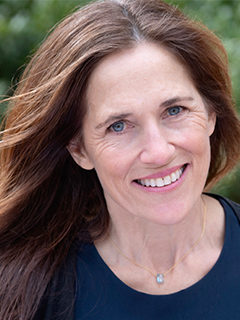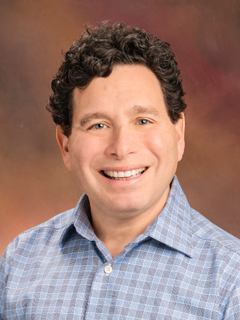HOW CAN WE HELP YOU? Call 1-800-TRY-CHOP
In This Section
Focusing on Solutions to Gun Violence With Evidence-based Activism
By Lauren Ingeno and Nancy McCann
Editor’s Note: Where Discovery Leads is a multimedia storytelling project that delves into key research themes at CHOP Research Institute. As part two of a two-part series that focuses on the scientific studies aimed at addressing gun violence — and prevention — this section is about the importance of storytelling and advocacy work for finding solutions to gun violence. See part one of this series.
When Ruth Abaya, MD, MPH, came to Philadelphia for a fellowship in 2015, she was struck by the sheer volume of gunshot victims who passed through the trauma bay every Thursday through Saturday night.

Ruth Abaya, MD, MPH
“Knowing that violence was a forgone conclusion on weekend nights was an unsustainable way for people to live in this city,” she said.
With a background in public health, Dr. Abaya became involved as a practice-based scholar at CHOP’s Center for Violence Prevention (CVP), and she was tapped by the city’s health department to be the program manager for its Injury Prevention Program. Little did she know that 2020 and 2021 would become two of Philadelphia’s most violent years on record.
Dr. Abaya serves as a connector for programs and groups throughout the city that are addressing gun violence. A key part of her duties includes obtaining and integrating data from the city’s six hospital-based violence intervention programs, as well as eight other violence interruption programs throughout Philadelphia. With that data, the city can start to paint a clearer, evidence-based picture of what works — and what does not — when it comes to curbing future firearm incidents.
“We are trying to understand as much as possible the collective impact this model is having on victims of violence,” she said. “We want to understand who the people are who have gone through these programs, what we’ve done for them, and what has happened as a result.”
Dr. Abaya considers herself an activist, and her work has brought her to testify in front of Philadelphia City Council and in Harrisburg, not only for policies like common-sense gun laws, “but also for policies that we think will build a better society.”
She believes that all healthcare professionals have a stake in addressing the gun violence epidemic, but that doesn’t always mean holding a sign at a rally or fighting political battles. It can be as simple as asking about and listening to patients’ complex life narratives.
“Our job is not just to stitch up cuts,” Dr. Abaya said. “Our job is to ask, ‘What happened to you?’ Not just in that one incident, but before the incident. ‘What baggage are you carrying? What stories do you hold?’”

Dorothy Novick, MD
A Gateway to Activism
Storytelling has also been a gateway to activism for Dorothy Novick, MD, a pediatrician at CHOP Primary Care, South Philadelphia.
After treating patients for nearly two decades, she experienced a growing restlessness about wanting to influence change beyond the exam room. On a whim, she signed up for a four-hour opinion writing workshop called “How to Change the World” with the OpEd Project.
Dr. Novick’s first op-ed — about how the expiration of the Children’s Health Insurance Program would affect her patients and their families — was published in The Washington Post in 2017. The Post, The Philadelphia Inquirer, and other national publications have since published more than a dozen of her opinion pieces, many focused on solutions to gun violence. In each of them, she delves into the emotions, traumas, and stories of her patients who must live with the reality of violence every day.
“There is a real hunger for this, because so much of what we read is policy language or statistics,” Dr. Novick said. “People respond to actual stories that drive home the impact of living with so much loss and fear.”
Drs. Novick and Abaya hope their work will lead physicians in Philadelphia to recognize that their patients’ lives have likely been touched by gun violence in some way. They believe that having an ear and eye open to the structural and social determinants of health will inform a sustainable approach to preventing gun violence.
“Violence does not thrive in communities where there is investment and where people have opportunity,” Dr. Abaya said.
Dr. Fein Goes to Harrisburg
Activism is also top of mind for Joel Fein, MD, MPH, an attending physician in CHOP’s Emergency Department, and co-director of the CVP. Last fall, he traveled to Harrisburg to address the Pennsylvania House Children and Youth Committee on the gun violence epidemic in Pennsylvania, how it threatens the physical and mental health of children in the Commonwealth, and the need for more research funding.
Through a presentation loaded with data and statistics, Dr. Fein also relied on stories to impress upon the policymakers that gun violence and its impact on children deserve their attention. He spoke of the night he cared for a toddler who had been struck by a bullet — shot accidentally by his older brother. Their mother was left wondering how her child got hold of his uncle’s handgun, which had been placed on top of the refrigerator.
Or another night shift when Dr. Fein cared for a young teenager who was grappling with depression and made the decision to end his own life using his father’s handgun, which was left loaded in his father’s bedside table for the rare event that a stranger entered the house with intent to kill.
These tragedies were undoubtedly avoidable if the guns were properly stored and secured, Dr. Fein said.
“For any advocacy issue, it’s important to have data, numbers, and demonstrate the impact of important interventions,” Dr. Fein said. “But most effective are the voices of researchers and community members together. We can convey the what, the why, and how policymakers and influencers can have the greatest impact on these important issues. The combination of data and stories can be really compelling.”




